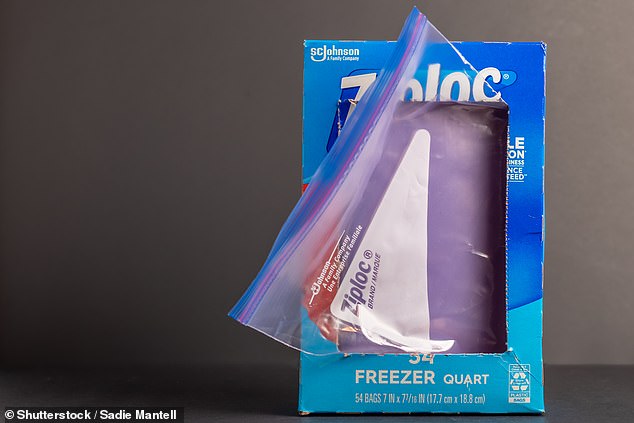
Widely Consumed U.S. Food Ingredient Linked to Dementia Affects 200 Million Americans
Ziploc Faces Lawsuit Over Alleged Microplastic Risks in Microwave-Safe Products
(Images: Ziploc bags/containers; microplastic particles; courtroom scene)
Ziploc, a household staple used by over 200 million Americans, is embroiled in a legal battle amid claims its microwave-safe bags and containers release harmful microplastics. A California class-action lawsuit alleges S.C. Johnson, Ziploc’s parent company, misled consumers about product safety, exposing them to toxins linked to cancer, cardiovascular disease, and reproductive issues.
Lawsuit Allegations
The 51-page complaint argues Ziploc’s "Microwave Safe" and "Freezer" labels are deceptive, failing to warn that heating or freezing polyethylene and polypropylene products—common plastics in Ziploc bags and containers—could release microplastics. Studies cited claim microwaving Ziploc bags for three minutes emits up to 4.22 million microplastic and 2.11 billion nanoplastic particles per square centimeter. Freezer storage allegedly accelerates breakdown, releasing similar risks.
(Image: Ziploc’s “Microwave Safe” label with caution sign overlay)
“These labels imply safety while omitting critical risks,” the lawsuit states, noting consumers unknowingly ingest microplastics during routine kitchen use. Plaintiff Linda Cheslow seeks nationwide class-action status for buyers within the last four years.
Health Risks of Microplastics
Microplastics—tiny plastic fragments under 5mm—accumulate in human tissues over time. The suit references studies showing:
- A 50% surge in brain microplastics from 2016 to 2024.
- Polypropylene particles detected in bone marrow, suggesting deep tissue penetration.
- Dementia patients had 7–30x higher brain microplastics than those without.
Research indicates prolonged exposure may disrupt hormones, damage organs, and trigger chronic inflammation.
(Image: Microscope view of microplastics in human tissue sample)
Company Response
S.C. Johnson denies wrongdoing, stating: “Ziploc products are safe when used as directed.” Critics, however, argue “microwave-safe” standards are outdated. Rubbermaid and other brands face similar scrutiny over heat-related plastic degradation.
Calls for Regulation
Public awareness of plastic risks is growing, pressuring the FDA to update safety guidelines. Current rules don’t address long-term chemical leaching or real-world usage patterns. The lawsuit highlights gaps in labeling laws, demanding clearer consumer warnings.
(Image: FDA building with protesters holding “Ban Toxic Plastics” signs)
What’s Next?
If certified as a class action, affected consumers could receive settlement payouts. Meanwhile, experts advise minimizing plastic use for heating food, opting for glass or ceramic alternatives.
This case underscores rising health concerns about everyday plastics, potentially reshaping food storage norms and corporate accountability.
(Word count: ~600)


